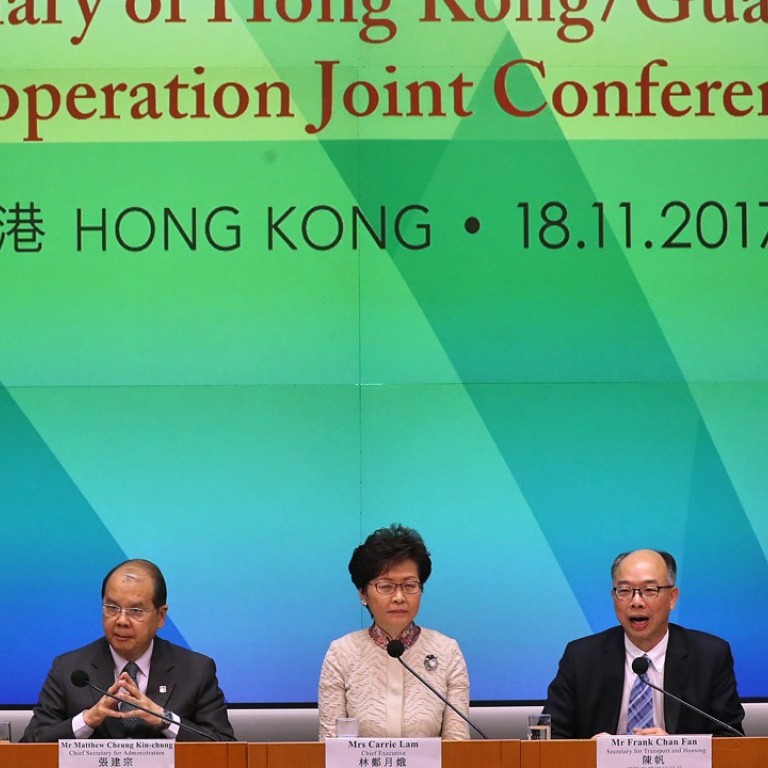
Paying for express rail tickets in renminbi at West Kowloon would only deepen mainlandisation fears
Michael Chugani is aghast that the Hong Kong transport secretary is open to using renminbi as the currency for high-speed railway tickets, as this would only play into the hands of those fanning fears over the joint immigration checkpoint
Are you serious, Mr Secretary? Do you really want to pursue the folly of using China’s renminbi as the currency to buy express rail tickets in Hong Kong? Unthinkable as it may be for many Hongkongers, that’s exactly what Transport and Housing Secretary Frank Chan Fan said two weeks ago.
These were his exact words at a press conference about the railway’s logistics: “How about the kind of currency that we are [to be] using? Should it be the Hong Kong dollar or should it be renminbi?”
I can think of only two reasons for Chan’s astounding remark: he wasn’t thinking straight, or he is unfamiliar with the word “mainlandisation”.
Either way, it again proves that our officials have an inborn knack to shoot themselves in the foot.
Great Wall emerges as second-biggest partner among buyers of Link Reit’s 17 shopping malls
Do we want to hasten the process by requiring Hongkongers to pay in renminbi for express rail tickets at West Kowloon?
Call me a localist if you will, but I am ruffled by the thought of having to pay in renminbi for a ticket on a railway built and paid for by Hong Kong.
Hong Kong gets connected to high-speed network
I have nothing against the renminbi. My bank account has some because it pays a higher interest.
Don’t confuse my brand of localism with that of the lunatics who equate it with self-rule. Independence is never going to happen, but drilling that into the brains of such people is mission impossible.
I am ruffled by the thought of having to pay in renminbi for a ticket on a railway built and paid for by Hong Kong
My definition of localism is accepting Hong Kong as a part of China but keeping at bay the kind of mainlandisation that dilutes our city’s character and culture. Many local stores, particularly high-end ones that cater to mainland tourists, already accept payment in renminbi.
But the express rail is not a store. It is a taxpayer-financed government entity intended to showcase Hong Kong as an international city efficiently linked to the world’s second-largest economy.
I am all for the express railway, having sampled it just a few weeks ago, hurtling from Chengdu to Chongqing at about 300km/h. Putting parts of West Kowloon under mainland jurisdiction doesn’t bother me.
If mainland officials want to arrest me, I am sure they are patient enough to wait 14 minutes until the train reaches Shenzhen.
Why is Hong Kong’s cross-border rail link causing such a fuss?
Some in the opposition have even ridiculed the express rail link as a pricey showpiece that benefits business elites rather than ordinary Hongkongers.
Does Chan really want to throw them more red meat by considering renminbi as the fare currency? Such a move will play right into the hands of the opposition. What next, they will ask. Charging renminbi for plane tickets to the mainland? What happened to “one country, two systems”?
It is, of course, a given that passengers travelling from the mainland to West Kowloon should pay with renminbi. I don’t even mind if passengers to the mainland are given a choice of either currency.
But choosing renminbi as the only currency? No sir, Secretary Chan. Banish the thought here and now.
Michael Chugani is a Hong Kong journalist and TV show host

